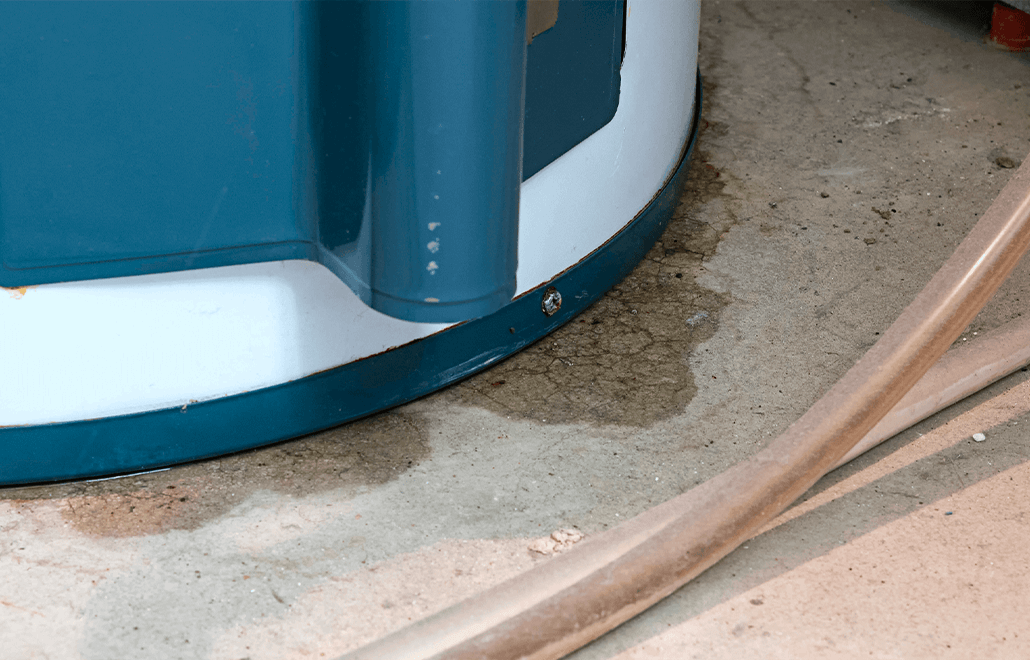
10 Oct Leaking Water Heater? Here’s What to Do to Ensure Your Safety
Your water heater plays a crucial role in providing hot water for various household needs, from relaxing showers to washing dishes. However, when you discover a leaking water heater, it can be a cause for concern. A leaking water heater is not only an inconvenience but can also pose safety risks and potential damage to your home. In this blog post, FB Plumbing is here to guide you on what to do if you encounter a leaking water heater, prioritizing your safety and well-being.
1. Turn Off the Power Supply
Safety should be your top priority when dealing with a leaking water heater. The first step is to turn off the power supply to the water heater. If you have an electric water heater, locate the circuit breaker that controls it and switch it off. For gas water heaters, find the gas valve and turn it to the “off” position. This step prevents electrical or gas-related accidents.
2. Shut Off the Water Supply
Next, you’ll want to stop the flow of water into the leaking water heater. Locate the cold water inlet valve, typically found near the top of the unit, and turn it clockwise to shut off the water supply. This will prevent additional water from entering the tank and worsening the leak.
3. Assess the Damage
Carefully examine the leaking water heater to assess the extent of the damage. Leaks can occur for various reasons, such as corrosion, pressure buildup, or a faulty relief valve. Take note of where the leak is originating, its size, and whether there is water pooling around the unit. This information will be valuable for a plumber’s assessment.
4. Drain the Tank (If Necessary)
If the leak is substantial, you may need to drain the water heater to prevent further damage and make repairs more manageable. Attach a garden hose to the drain valve at the bottom of the unit and run it to a suitable drainage location. Open the valve to allow water to flow out until the tank is empty. Be cautious, as the water will likely be hot.
5. Contact a Professional Plumber
A leaking water heater is not typically a DIY repair. It’s crucial to contact a professional plumber experienced in water heater repair and replacement. They have the expertise to diagnose the issue accurately and recommend the necessary repairs or replacement options.
6. Consider Safety Hazards
If you suspect a gas leak, such as the smell of natural gas (rotten egg odor), exit your home immediately and contact your gas company and emergency services. Do not turn on any electrical devices or light switches, as sparks could ignite the gas.
7. Preventive Maintenance
To avoid future water heater issues, consider scheduling regular preventive maintenance. A professional plumber can inspect your water heater, check for signs of corrosion or wear, and perform maintenance tasks to extend its lifespan.
In conclusion, a leaking water heater can be a stressful situation, but knowing how to respond safely is essential. Turning off the power and water supply, assessing the damage, contacting a professional plumber, and prioritizing safety are key steps. Additionally, regular preventive maintenance can help prevent future water heater problems. If you ever encounter a leaking water heater or require plumbing services, don’t hesitate to reach out to FB Plumbing. Your safety and peace of mind are our top priorities.
Sorry, the comment form is closed at this time.